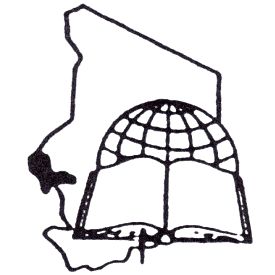Jacob Arrives at Laban's Home
1 As Jacob continued on his way to the east, 2 he looked out in a field and saw a well where shepherds took their sheep for water. Three flocks of sheep were lying around the well, which was covered with a large rock. 3 Shepherds would roll the rock away when all their sheep had gathered there. Then after the sheep had been watered, the shepherds would roll the rock back over the mouth of the well.
4 Jacob asked the shepherds, “Where are you from?”
“We're from Haran,” they answered.
5 Then he asked, “Do you know Nahor's grandson Laban?”
“Yes we do,” they replied.
6 “How is he?” Jacob asked.
“He's fine,” they answered. “And here comes his daughter Rachel with the sheep.”
7 Jacob told them, “Look, the sun is still high up in the sky, and it's too early to bring in the rest of the flocks. Water your sheep and take them back to the pasture.”
8 But they replied, “We can't do that until they all get here, and the rock has been rolled away from the well.”
9 While Jacob was still talking with the men, his cousin Rachel came up with her father's sheep. 10 When Jacob saw her and his uncle's sheep, he rolled the rock away and watered the sheep. 11 He then kissed Rachel and started crying because he was so happy. 12 He told her that he was the son of her aunt Rebekah, and she ran and told her father about him.
13 As soon as Laban heard the news, he ran out to meet Jacob. He hugged and kissed him and brought him to his home, where Jacob told him everything that had happened. 14 Laban said, “You are my nephew, and you are like one of my own family.”
Jacob Marries Leah and Rachel
After Jacob had been there for a month, 15 Laban said to him, “You shouldn't have to work without pay, just because you are a relative of mine. What do you want me to give you?”
16-17 Laban had two daughters. Leah was older than Rachel, but her eyes didn't sparkle, while Rachel was beautiful and had a good figure. 18 Since Jacob was in love with Rachel, he answered, “If you will let me marry Rachel, I'll work seven years for you.”
19 Laban replied, “It's better for me to let you marry Rachel than for someone else to have her. So stay and work for me.” 20 Jacob worked seven years for Laban, but the time seemed like only a few days, because he loved Rachel so much.
21 Jacob said to Laban, “The time is up, and I want to marry Rachel now!” 22 So Laban gave a big feast and invited all their neighbors. 23 But that evening he brought Leah to Jacob, who married her and spent the night with her. 24 Laban also gave Zilpah to Leah as her servant woman.
25 The next morning Jacob found out that he had married Leah, and he asked Laban, “Why did you do this to me? Didn't I work to get Rachel? Why did you trick me?”
26 Laban replied, “In our country the older daughter must get married first. 27 After you spend this week with Leah, you may also marry Rachel. But you will have to work for me another seven years.”
28-30 At the end of the week of celebration, Laban let Jacob marry Rachel, and he gave her his servant woman Bilhah. Jacob loved Rachel more than he did Leah, but he had to work another seven years for Laban.
31 The Lord knew that Jacob loved Rachel more than he did Leah, and so he gave children to Leah, but not to Rachel. 32 Leah gave birth to a son and named him Reuben. Then she said, “The Lord has taken away my sorrow. Now my husband will love me more than he does Rachel.” 33 She had a second son and named him Simeon, because she said, “The Lord has heard that my husband doesn't love me.” 34 When Leah's third son was born, she said, “Now my husband will hold me close.” So this son was named Levi. 35 She had one more son and named him Judah, because she said, “I'll praise the Lord!”
Jacob chez Laban
V. 1-14: cf. Ge 24:10-32. Ex 2:15-21.1 Jacob se mit en marche, et s’en alla au pays des fils de l’Orient. 2 Il regarda. Et voici, il y avait un puits dans les champs; et voici, il y avait à côté trois troupeaux de brebis qui se reposaient, car c’était à ce puits qu’on abreuvait les troupeaux. Et la pierre sur l’ouverture du puits était grande. 3 Tous les troupeaux se rassemblaient là; on roulait la pierre de dessus l’ouverture du puits, on abreuvait les troupeaux, et l’on remettait la pierre à sa place sur l’ouverture du puits. 4 Jacob dit aux bergers: Mes frères, d’où êtes-vous? Ils répondirent: Nous sommes de Charan. 5 Il leur dit: Connaissez-vous Laban, fils de Nachor? Ils répondirent: Nous le connaissons. 6 Il leur dit: Est-il en bonne santé? Ils répondirent: Il est en bonne santé; et voici Rachel, sa fille, qui vient avec le troupeau. 7 Il dit: Voici, il est encore grand jour, et il n’est pas temps de rassembler les troupeaux; abreuvez les brebis, puis allez, et faites-les paître. 8 Ils répondirent: Nous ne le pouvons pas, jusqu’à ce que tous les troupeaux soient rassemblés; c’est alors qu’on roule la pierre de dessus l’ouverture du puits, et qu’on abreuve les brebis. 9 Comme il leur parlait encore, survint Rachel avec le troupeau de son père; car elle était bergère. 10 Lorsque Jacob vit Rachel, fille de Laban, frère de sa mère, et le troupeau de Laban, frère de sa mère, il s’approcha, roula la pierre de dessus l’ouverture du puits, et abreuva le troupeau de Laban, frère de sa mère. 11 Et Jacob baisa Rachel, il éleva la voix et pleura. 12 Jacob apprit à Rachel qu’il était parent de son père, qu’il était fils de Rebecca. Et elle courut l’annoncer à son père. 13 Dès que Laban eut entendu parler de Jacob, fils de sa sœur, il courut au-devant de lui, il l’embrassa et le baisa, et il le fit venir dans sa maison. Jacob raconta à Laban toutes ces choses. 14 Et Laban lui dit: Certainement, tu es mon os et ma chair.
Léa et Rachel
V. 15-30: cf. Os 12:13. Jg 14:10-13.Jacob demeura un mois chez Laban. 15 Puis Laban dit à Jacob: Parce que tu es mon parent, me serviras-tu pour rien? Dis-moi quel sera ton salaire. 16 Or, Laban avait deux filles: l’aînée s’appelait Léa, et la cadette Rachel. 17 Léa avait les yeux délicats; mais Rachel était belle de taille et belle de figure. 18 Jacob aimait Rachel, et il dit: Je te servirai sept ans pour Rachel, ta fille cadette. 19 Et Laban dit: J’aime mieux te la donner que de la donner à un autre homme. Reste chez moi! 20 Ainsi Jacob servit sept années pour Rachel: et elles furent à ses yeux comme quelques jours, parce qu’il l’aimait. 21 Ensuite Jacob dit à Laban: Donne-moi ma femme, car mon temps est accompli: et j’irai vers elle. 22 Laban réunit tous les gens du lieu, et fit un festin. 23 Le soir, il prit Léa, sa fille, et l’amena vers Jacob, qui s’approcha d’elle. 24 Et Laban donna pour servante à Léa, sa fille, Zilpa, sa servante. 25 Le lendemain matin, voilà que c’était Léa. Alors Jacob dit à Laban: Qu’est-ce que tu m’as fait? N’est-ce pas pour Rachel que j’ai servi chez toi? Pourquoi m’as-tu trompé? 26 Laban dit: Ce n’est point la coutume dans ce lieu de donner la cadette avant l’aînée. 27 Achève la semaine avec celle-ci, et nous te donnerons aussi l’autre pour le service que tu feras encore chez moi pendant sept nouvelles années. 28 Jacob fit ainsi, et il acheva la semaine avec Léa; puis Laban lui donna pour femme Rachel, sa fille. 29 Et Laban donna pour servante à Rachel, sa fille, Bilha, sa servante. 30 Jacob alla aussi vers Rachel, qu’il aimait plus que Léa; et il servit encore chez Laban pendant sept nouvelles années.
Les enfants de Jacob
V. 31-35: cf. Ps 127:3. Ge 49:1-12.31 L’Éternel vit que Léa n’était pas aimée; et il la rendit féconde, tandis que Rachel était stérile. 32 Léa devint enceinte, et enfanta un fils, à qui elle donna le nom de Ruben; car elle dit: L’Éternel a vu mon humiliation, et maintenant mon mari m’aimera. 33 Elle devint encore enceinte, et enfanta un fils, et elle dit: L’Éternel a entendu que je n’étais pas aimée, et il m’a aussi accordé celui-ci. Et elle lui donna le nom de Siméon. 34 Elle devint encore enceinte, et enfanta un fils, et elle dit: Pour cette fois, mon mari s’attachera à moi; car je lui ai enfanté trois fils. C’est pourquoi on lui donna le nom de Lévi. 35 Elle devint encore enceinte, et enfanta un fils, et elle dit: Cette fois, je louerai l’Éternel. C’est pourquoi elle lui donna le nom de Juda. Et elle cessa d’enfanter.

